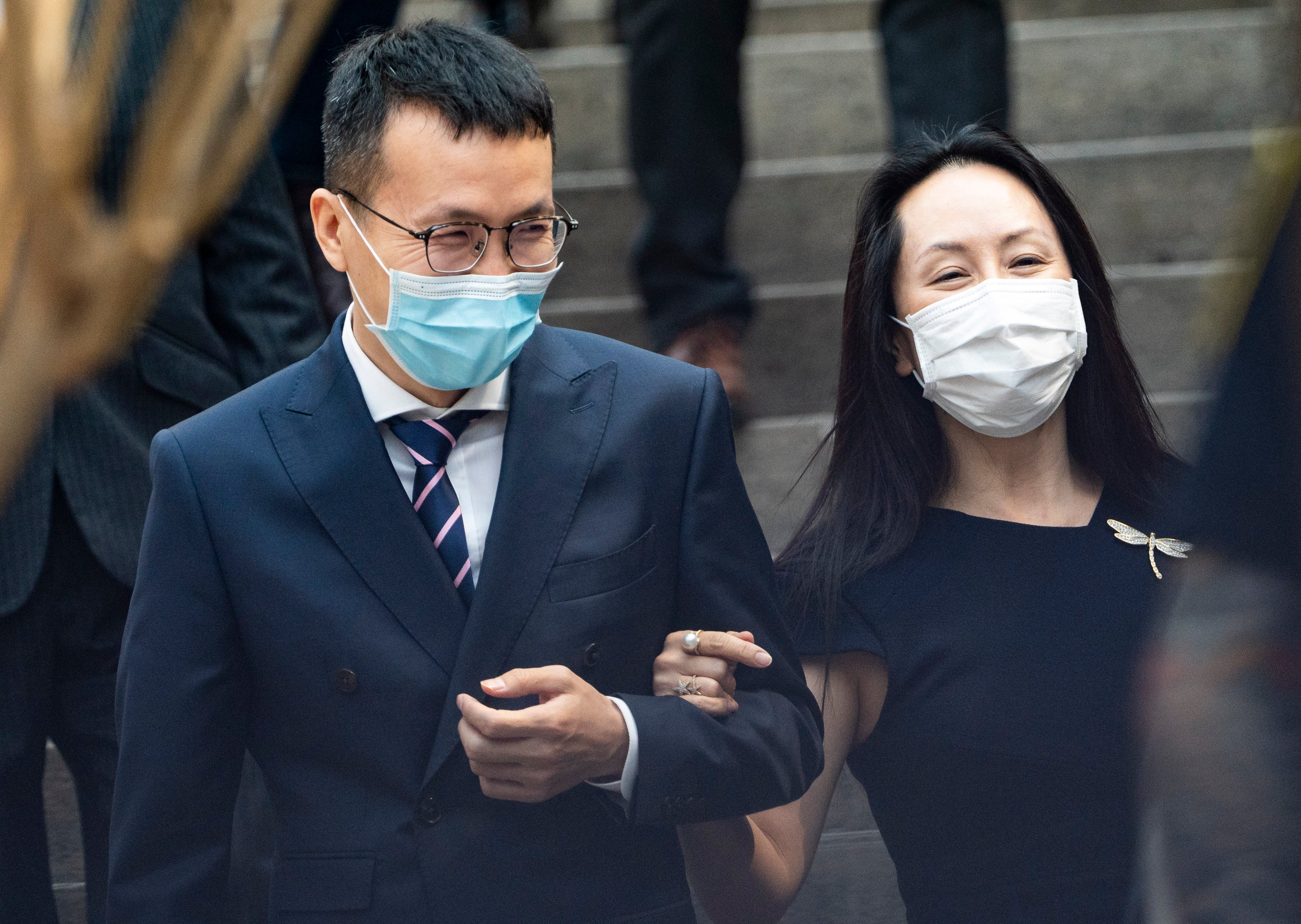US case against Huawei CFO 'flawed,' her lawyers say
Lawyers for a senior executive for Chinese communications giant Huawei Technologies attacked the case against her as “fatally flawed” and full of “shifting theories” during an extradition hearing Friday

Your support helps us to tell the story
From reproductive rights to climate change to Big Tech, The Independent is on the ground when the story is developing. Whether it's investigating the financials of Elon Musk's pro-Trump PAC or producing our latest documentary, 'The A Word', which shines a light on the American women fighting for reproductive rights, we know how important it is to parse out the facts from the messaging.
At such a critical moment in US history, we need reporters on the ground. Your donation allows us to keep sending journalists to speak to both sides of the story.
The Independent is trusted by Americans across the entire political spectrum. And unlike many other quality news outlets, we choose not to lock Americans out of our reporting and analysis with paywalls. We believe quality journalism should be available to everyone, paid for by those who can afford it.
Your support makes all the difference.Lawyers for a senior executive for Chinese communications giant Huawei Technologies attacked the case against her as “fatally flawed” and full of “shifting theories” during an extradition hearing Friday.
Canada arrested Meng Wanzhou the daughter of Huawei’s founder and the company’s chief financial officer, at Vancouver’s airport in late 2018. The U.S. wants her extradited to face fraud charges. Her arrest infuriated Beijing, which sees her case as a political move designed to prevent China’s rise.
The U.S. accuses Huawei of using a Hong Kong shell company called Skycom to sell equipment to Iran in violation of U.S. sanctions. It says Meng, 49, committed fraud by misleading the HSBC bank about the company’s business dealings in Iran.
The lengthy extradition proceeding is entering the committal phase which involves arguments over the U.S. government’s request to extradite Meng.
Defense lawyer Eric Gottardi said fraud cases are normally straightforward, with a lie being told that results in someone losing money.
“This case is different,” he said. “The alleged deception is ambiguous at best. The risk of economic loss to the alleged victim HSBC is wholly illusionary.”
The shifting theories put forward by the U.S. “underscores the weakness of their case,” he said.
“There is no actual loss in this case. None of the requesting states theories of risk of loss pass muster. They all are either non-existent or entirely speculative.”
The threshold for granting an extradition might not be high but “it is a meaningful threshold,” said Gottardi.
“A requesting state requires a plausible case. Here we say the case falls far short.”
Gottardi disputed claims by Canadian government lawyers that during a meeting with an HSBC official Meng was dishonest in not disclosing Huawei’s relationship with Skycom and that put the bank at risk of violating U.S. sanctions against Iran.
“There is no evidence Ms. Meng’s representation caused HSBC to violate any US sanctions law,” he said. “In any event HSBC was not exposed to any real risk to criminal or civil liability.”
It was HSBC’s choice to take money deposited by Skycom and clear it through the U.S.
“The fact HSBC chose to clear US dollar transactions through it’s U.S. subsidiary . . . cannot be blamed on Ms. Meng,” Gottardi said.
Frank Addario, another member of the defense team, said during the meeting Meng never denied Huawei and Skycom “work closely together in Iran.”
She also denied allegations made in a news story that Huawei was involved in selling embargoed equipment.
“There is no zero evidence that either Skycom or Huawei violated U.S. sanctions laws respecting Iran,” he said.
Meng, who attended court wearing an electronic monitoring device on her ankle, followed the proceedings through a translator.
Associate Chief Justice Heather Holmes isn’t expected to rule on Meng’s extradition until later in the year. Whatever her decision, it will likely be appealed.
Earlier this week a Chinese court sentenced Canadian entrepreneur Michael Spavor to 11 years in prison for spying.
Spavor and fellow Canadian Michael Kovrig were arrested in December of 2018 in apparent retaliation to Meng’s arrest.
The Chinese government has released few details other than to accuse Spavor of passing along sensitive information to Kovrig, beginning in 2017. Both have been held in isolation and have little contact with Canadian diplomats.
In another case, the Higher People’s Court of Liaoning province in the northeast rejected an appeal by Canadian Robert Schellenberg, whose 15-year prison term on drug smuggling charges was increased to death in January 2019 following Meng’s arrest.
Meng remains free on bail in Vancouver and is living in a mansion.